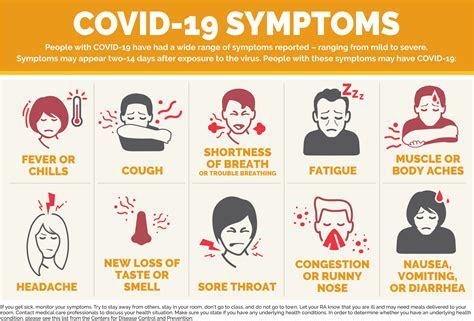Intro
Discover causes and treatments for difficulty swallowing diseases, including dysphagia, esophageal disorders, and neurological conditions, to alleviate swallowing difficulties and improve quality of life.
Difficulty swallowing, also known as dysphagia, is a common symptom that can be caused by a variety of diseases and conditions. It is estimated that over 15 million people in the United States alone suffer from dysphagia, with the prevalence increasing with age. Dysphagia can be a debilitating and potentially life-threatening condition, as it can lead to malnutrition, dehydration, and respiratory complications. In this article, we will explore the different diseases and conditions that can cause difficulty swallowing, as well as the symptoms, diagnosis, and treatment options available.
The importance of addressing difficulty swallowing cannot be overstated. When left untreated, dysphagia can lead to serious health complications, including pneumonia, respiratory failure, and even death. Furthermore, dysphagia can have a significant impact on a person's quality of life, making everyday activities such as eating and drinking a challenge. By understanding the causes of dysphagia and seeking medical attention, individuals can receive the necessary treatment and care to manage their symptoms and improve their overall health.
Dysphagia can be caused by a wide range of diseases and conditions, including neurological disorders, gastrointestinal diseases, and structural abnormalities. Neurological disorders such as Parkinson's disease, stroke, and amyotrophic lateral sclerosis (ALS) can damage the nerves that control swallowing, leading to dysphagia. Gastrointestinal diseases such as gastroesophageal reflux disease (GERD) and esophagitis can cause inflammation and irritation in the esophagus, making swallowing difficult. Structural abnormalities such as esophageal strictures and tumors can also obstruct the passage of food and liquids, leading to dysphagia.
Diseases that Cause Difficulty Swallowing

Dysphagia can be caused by a variety of diseases and conditions, including:
- Neurological disorders: Parkinson's disease, stroke, ALS, and multiple sclerosis
- Gastrointestinal diseases: GERD, esophagitis, and esophageal cancer
- Structural abnormalities: esophageal strictures, tumors, and Zenker's diverticulum
- Muscular disorders: muscular dystrophy and myasthenia gravis
- Infections: pneumonia and tuberculosis
Neurological Disorders
Neurological disorders are a common cause of dysphagia. These disorders can damage the nerves that control swallowing, making it difficult to coordinate the muscles involved in swallowing. Parkinson's disease, for example, can cause dysphagia due to the degeneration of dopamine-producing neurons in the brain. Stroke can also cause dysphagia by damaging the brain's swallowing centers. ALS, a progressive neurological disease, can cause dysphagia by damaging the nerves that control the muscles involved in swallowing.Symptoms of Difficulty Swallowing

The symptoms of dysphagia can vary depending on the underlying cause. Common symptoms include:
- Difficulty swallowing solids or liquids
- Coughing or choking while eating or drinking
- Regurgitation of food or liquids
- Weight loss or malnutrition
- Dehydration
- Respiratory complications such as pneumonia
Diagnosis of Difficulty Swallowing
Diagnosing dysphagia typically involves a combination of physical examination, medical history, and diagnostic tests. A healthcare provider may perform a physical examination to assess the patient's overall health and look for signs of malnutrition or dehydration. A medical history may be taken to identify any underlying conditions that may be contributing to the dysphagia. Diagnostic tests such as swallowing studies, endoscopy, and imaging tests may be used to visualize the swallowing process and identify any structural or functional abnormalities.Treatment Options for Difficulty Swallowing

Treatment for dysphagia depends on the underlying cause. Treatment options may include:
- Dietary modifications: eating smaller, more frequent meals, avoiding certain foods or liquids
- Swallowing exercises: exercises to strengthen the muscles involved in swallowing
- Medications: medications to manage underlying conditions such as GERD or esophagitis
- Surgery: surgery to remove any structural abnormalities or tumors
- Alternative feeding methods: tube feeding or parenteral nutrition
Managing Difficulty Swallowing
Managing dysphagia requires a comprehensive approach that involves a healthcare provider, dietitian, and speech-language pathologist. A healthcare provider can help diagnose and treat any underlying conditions that may be contributing to the dysphagia. A dietitian can help develop a personalized diet plan that takes into account any dietary restrictions or modifications. A speech-language pathologist can help develop a swallowing exercise program to strengthen the muscles involved in swallowing.Preventing Difficulty Swallowing

Preventing dysphagia involves maintaining a healthy lifestyle and managing any underlying conditions that may be contributing to the dysphagia. Tips for preventing dysphagia include:
- Eating a balanced diet
- Staying hydrated
- Avoiding certain foods or liquids that may trigger dysphagia
- Managing underlying conditions such as GERD or esophagitis
- Practicing good oral hygiene
Coping with Difficulty Swallowing
Coping with dysphagia can be challenging, but there are many resources available to help. Support groups, online forums, and counseling services can provide emotional support and connect individuals with others who are experiencing similar challenges. Assistive devices such as adaptive utensils and drinking cups can help make eating and drinking easier. A healthcare provider can also provide guidance and support to help individuals manage their dysphagia and improve their overall quality of life.Conclusion and Next Steps

In conclusion, difficulty swallowing is a common symptom that can be caused by a variety of diseases and conditions. By understanding the causes of dysphagia and seeking medical attention, individuals can receive the necessary treatment and care to manage their symptoms and improve their overall health. If you or someone you know is experiencing difficulty swallowing, it is essential to seek medical attention to rule out any underlying conditions that may be contributing to the dysphagia. With the right treatment and support, individuals can manage their dysphagia and improve their overall quality of life.
What is dysphagia?
+Dysphagia is a medical term that refers to difficulty swallowing. It can be caused by a variety of diseases and conditions, including neurological disorders, gastrointestinal diseases, and structural abnormalities.
What are the symptoms of dysphagia?
+The symptoms of dysphagia can vary depending on the underlying cause, but common symptoms include difficulty swallowing solids or liquids, coughing or choking while eating or drinking, regurgitation of food or liquids, weight loss or malnutrition, and dehydration.
How is dysphagia diagnosed?
+Dysphagia is typically diagnosed through a combination of physical examination, medical history, and diagnostic tests such as swallowing studies, endoscopy, and imaging tests.
What are the treatment options for dysphagia?
+Treatment for dysphagia depends on the underlying cause, but may include dietary modifications, swallowing exercises, medications, surgery, and alternative feeding methods such as tube feeding or parenteral nutrition.
Can dysphagia be prevented?
+While dysphagia cannot be completely prevented, maintaining a healthy lifestyle and managing any underlying conditions that may be contributing to the dysphagia can help reduce the risk of developing dysphagia.
We hope this article has provided you with a comprehensive understanding of difficulty swallowing diseases. If you have any further questions or concerns, please do not hesitate to reach out to a healthcare professional. Additionally, we invite you to share your experiences and tips for managing dysphagia in the comments section below. By sharing our knowledge and experiences, we can work together to improve our understanding of dysphagia and develop more effective treatment options.
